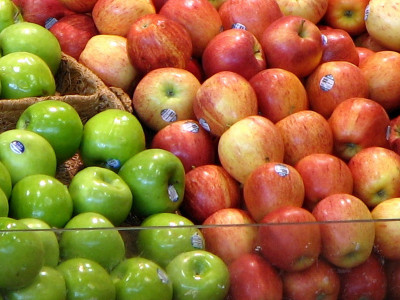How can I break the bad habit I got?

It is difficult to stop behaviors that have become customs such as smoking and late night meals, and many people have sometimes returned to the former days in a few days after the custom that should have broken off. YouTube channelAsapSCIENCESo, how to revise a bad habit you have once gotten is introduced.
How To Break Your Bad Habit - YouTube
How can I get rid of bad habits such as blowing nails, smoking, eating at midnight?

According to Duke University research, it seems that 45% of people's activities tend to be done in the same place everyday. In other words, it is said that about half of the time people are living is becoming a habit, and it is said that they are devoted to routine work.

Massachusetts Institute of Technology (MIT)So we are doing experiments to examine habitualized brains. In this experiment, we made a T-shaped maze and placed chocolate on the T-junction turning to the left. Then, after letting a mouse stand by in front of the entrance, when I opened the gate I checked what kind of route the mouse got to chocolate.
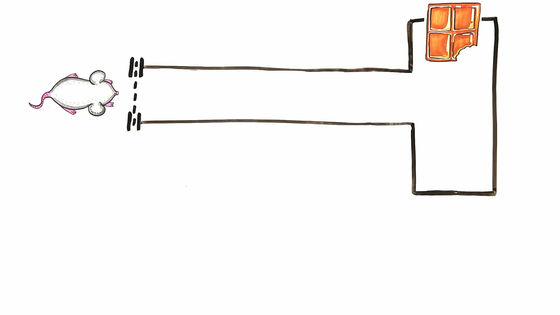
Then the mouse walked straight along the maze, bent right once and confirmed that there was nothing, it seems that he arrived at the chocolate on the left side. Examining the brain waves at this time, it was said that it was always active.

After that, when I did the same thing over and over the mouse and learned the position of chocolate, she seems to be able to reach chocolate smoothly without getting fucked up. Examining the brain wave at this time, it was said that it was no longer active two times, when opening the gate and when reaching the chocolate.

From the results of this experiment, it is thought that the brain gathers a lot of information and acts actively all the time when doing new behavior.
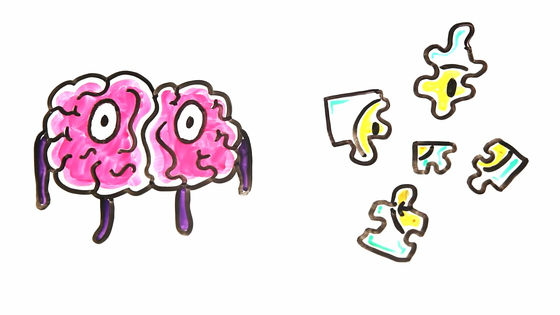
Then, when the behavior pattern is decided and it becomes possible to process the past actions as one chunk in the brain ...
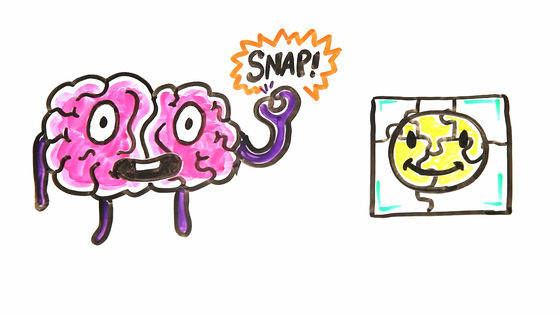
It is stored in the brain as a new habit.

Thanks to this, even with difficult skills such as "to move the car back with brushing teeth", you will be able to easily pattern by being patterned.
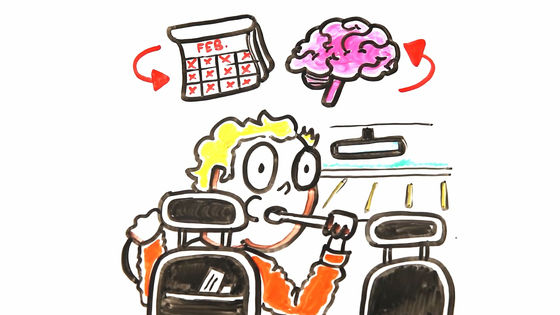
This learning process is made up of three steps of "trigger", "routine" and "remuneration". In a mouse experiment, for example, "Trigger" is a signal to open the gate, "Routine" is a T-shaped maze, "Reward" is Chocolate. And, when action is made into habit, the brain will think about only the timing of these two steps because it is omitted in the process that only "reward" comes back to the action which was done for "trigger" That's why.
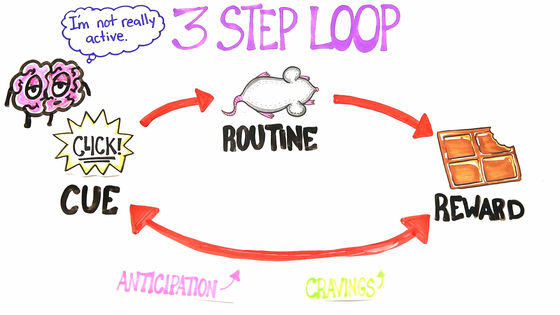
However, habits do not necessarily lead to good rewards. For example, a person who did not eat decay food and not hurt might find a bad habit of feeling that "you can still eat" even if you look at the popcorn that is hitting insects.
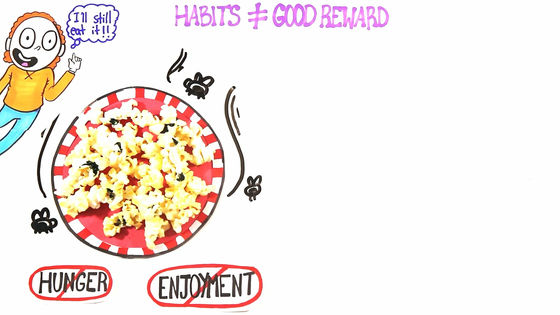
One example that actually came up is the campaign "TAKE 5" that was implemented to make American citizens take a balanced diet. Among them, it was recommended to eat habitually five ingredients: apples, broccoli, banana, oranges and carrots. However, it is said that only 11% of the people who actually acquired this practice were actually, it is difficult to make it a habit.
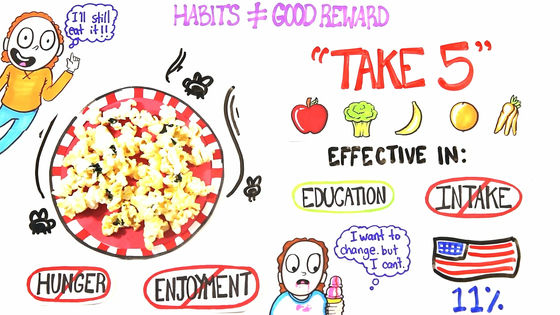
Then, how can we change a bad habit? Charles Duigg, author of "THE POWER OF HABIT", explains cookies as an example.

Mr. Duigg had a custom to go to the cafeteria and eat cookies at 3:15 pm every day. And as we gained weight as everyday, it seems he felt like "I have to quit ...", but he seems to have been unable to stop behaviors that have become customs.
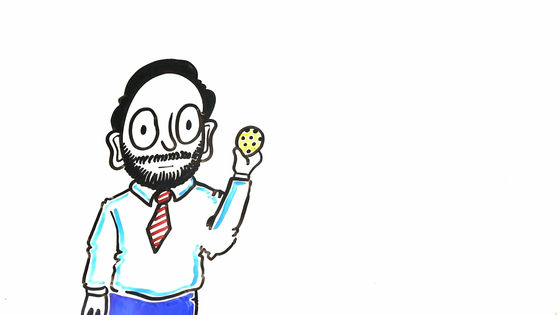
At one point, Mr. Duigg thought, "Why are you going to the cafeteria?" When I thought about it, I noticed that I was looking forward to talking with my friends. In other words, the purpose of moving at 3:15 was not to eat cookies, but to chat with someone.

So, Mr. Duigg got to go to the desk of someone rather than going to the cafeteria after 3 pm and decided to chat. Due to this behavior becoming a habit, Mr. Duigg seems to stop eating cookies. In other words, I told you that I was able to break bad habits by changing the contents of "reward" from "cookie" to "chat" without changing "the chance".
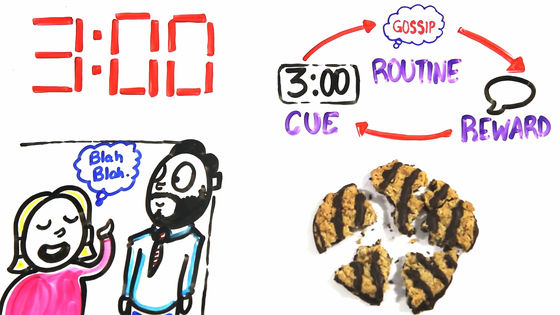
Here, suppose there was a custom of biting a nail to a person. Let's think about what to do when you want to stop this habit. First of all, I will think about what triggers are. When this person bites his nails, is it "when you are nervous"? Or is it "boring"?
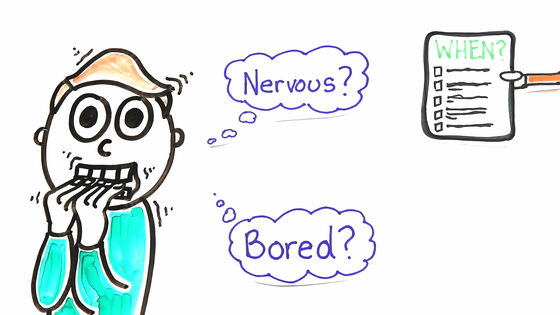
Let's consider a person who barks a nail in "boring time". This person is considered to want physical stimulation at "boring time".

So, if you have a boring time of the day, instead of "chewing the nails" instead of "biting your pocket", "bending your arms", "tap the desk lightly with a fist" It is thought that it can substitute by giving different stimulus. Then you can change the reward without changing the "trigger", so you should be able to change bad habits like Mr. Duhig.
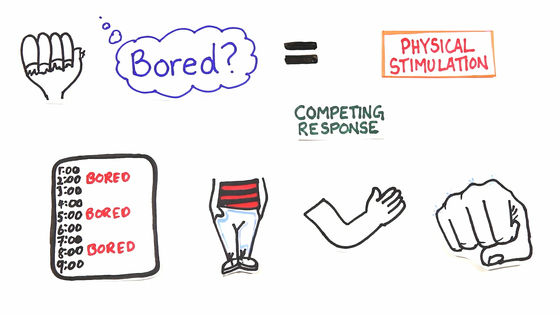
Likewise, if a person who has become a habit of smoking has become a habit, thinking at what time you smoke cigarettes You can see that it is an ant to try out the "change" remuneration given to you, thinking about "the chance" .
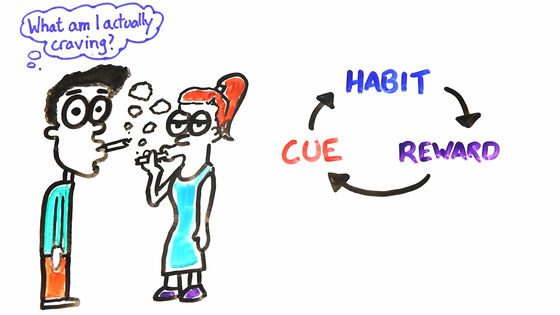
Related Posts:
in Video, Posted by darkhorse_log







